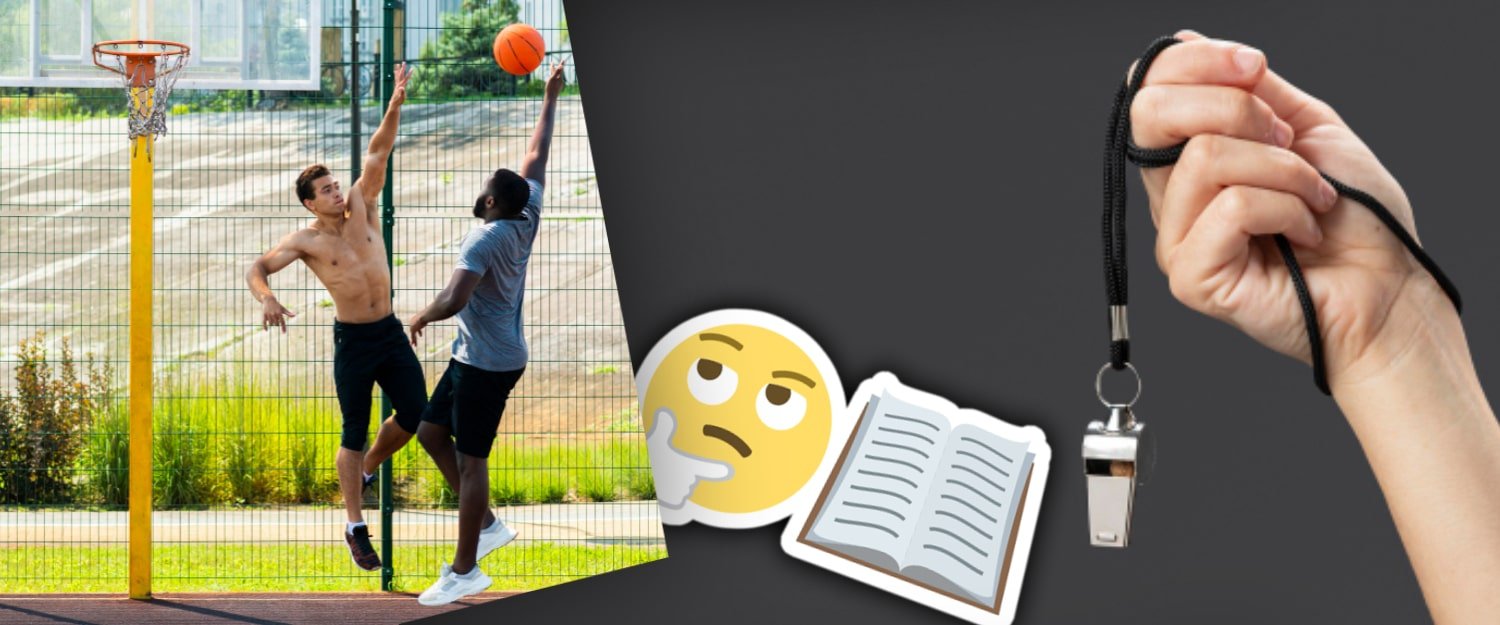How To Become A Basketball Referee: All You Need To Know
Do you want to know how to become a basketball referee? I’m glad you asked! That is the question that many athletes, parents, coaches, and others ask themselves when they are deciding what to do with their lives. Becoming a basketball referee has its benefits and drawbacks on both sides of the equation. In this blog post, we will discuss all aspects of becoming a basketball referee so that you can make an educated decision about your future!
What is a basketball referee?
A basketball referee, or ref, is the official who enforces the rules of the game. There are several sports officials in the game of basketball, including scorers and timekeepers, but the referee maintains fair play according to the basketball rulebooks.
What are the Pros and Cons of Becoming a Basketball Referee?
Becoming a basketball referee has its benefits and drawbacks.
The Pros
- One of the benefits is that it can be a pretty good-paying job if you work hard and get yourself out there.
- Another benefit is that referees usually have some sort of flexibility with their time, so they will not miss too much class or anything like that when working games at night.
- You get to participate in the sport and be a part of your team. It can also provide you with an opportunity to make some extra money, especially during college when it becomes necessary for many students.

The Cons
Of course, being a basketball referee also has its drawbacks.
- You are not playing the game with your friends and teammates. It may be hard to stay motivated if this is something you have been doing for many years without reaching any personal milestones.
- It also takes away from time spent practicing/playing on your own.
- Not as profitable as other jobs outside of sports, and must work at least 20 hours per week.
- Another pretty obvious drawback is the high-stress levels while working games, etc.
However, if these things don’t deter you from becoming a referee then continue reading!
4 Areas of Responsibility for Basketball Referees
- Basketballs: The possession of the basketball during a game entails a number of duties for referees. The jump ball is thrown in at the beginning of the game, in overtime, or when there are penalties. The ball is returned to play once it goes out of bounds, and the referees also decide which team has possession of the ball during throw-ins and free throws.
- Equipment: The referee must also inspect the teams and the equipment to make sure everything complies with the rules. They decide how safe the court — including the floor, backboard, and hoops — is. In order for the basketball to weigh between seven and a half and eight pounds, referees must also ensure that it is correctly inflated.
- Fouls: Basketball referees stop gameplay when a technical or personal foul or a violation occurs. The latter includes double-dribbling, traveling, and the ball straying out of bounds. The referees employ hand signals to designate the sort of infraction, and in the event of a second offense, they decide on the proper sanctions for the players, teams, or staff.
- Safety: Throughout a game, officials help ensure the safety of the players, crew, and spectators. Before to the game, they look for any unlawful equipment on team clothing and equipment. Additionally, they issue warnings for excessively rough play and even evict players, personnel, and even spectators for disruptive behavior from the basketball floor.
How to Start Your Journey as a Basketball Referee
First of all, to be a basketball referee you must be at least 18 years old.
You also need to have a high school diploma or equivalent, and most likely some type of college education as well depending on what level you would like to work in.
Referees should know how to play basketball very well. Some people say that it helps if they were players themselves so there are no disputes about rules with anyone else involved in the game!
Starting From the Bottom
First things first – enroll yourself into youth basketball programs such as your local YMCA/YW through their youth sports program. Participating in these programs as a player is always beneficial, and many people start this way.
From there, move on to the high school level games as a way of getting your feet wet. Once you have been working at this for a while and feel comfortable with it then enroll in referee classes/certification programs somewhere local such as basketball camps or other organizations that run them.
Once you have completed all these steps, now is when things start to get serious!
Making it to the Top!
You should try out for any officiating tournaments going on during your period so that referees can see how well you perform under pressure! After doing this a few times it will help secure a spot within professional leagues like NBA and WNBA if desired.
By following these steps, anyone has an opportunity to become a successful basketball referee who can make great money while
How Long Does it Take to Become a Basketball Ref?
You should be able to get your first gig within six months or less depending on what type of program you are working through and if they have an opening available! However, there might not necessarily be paid opportunities right away so make sure you aren’t expecting any money until after about one year at least. Once you are old enough (18+) usually all games will pay something even if it’s only gas money.
How Much Does it Cost to Become a Basketball Referee?
The truth of the matter is that many programs will cover most or all costs for you. This includes things like uniforms, shoes (if needed), and any other fees associated with becoming part of their program. Some may even offer paid training opportunities where experienced referees can teach new ones how to succeed in this career path. You shouldn’t be spending more than $50-$100 on your own during the entire process if something like that is available through what you are working with!
What Kind of Education Level do Referees Need?
This is a great question! As briefly mentioned in other sections of this blog post, the minimum requirement to become a youth basketball referee is just a high school diploma.
However, as you advance through the stages, this may alter based on local league or organization restrictions. If this pertains to them and how it works for each program they offer, you should inquire with your local committee or association.
How Much do NBA Referees Make?
Being an NBA official is the pinnacle of a basketball referee’s career. They are considered to be the best officials in all of basketball.

NBA referees make between $150,000 – $550,000 per year depending on their experience and what tier they are within this league. Additionally, you can get additional pay for working during playoffs as well! Some people may even receive a bonus if it is an especially high-profile game involving two big teams with lots of viewers watching around the world.
Skills for NBA refs
NBA referees must possess both basketball knowledge and people skills to be successful in their positions. Here are some examples of skills that NBA officials could use:
- Physical endurance: Referees must run, backpedal, and stoop throughout basketball games in order to follow the ball and call fouls as necessary. During basketball games, referees must stand for extended periods of time. As a result, NBA referees must possess exceptional physical stamina that enables them to run, walk, or stand continuously throughout a game.
- Being patient: Referees may need to soothe a player or coach who is furious over a call they made. The referee will need to have a lot of patience in this situation. Hence, being able to maintain composure and professionalism in tense situations might help referees continue doing a good job.
- Good communication skills: NBA referees need to have strong interpersonal skills so they can adapt their communication methods while speaking to a player, coach, or other official. NBA referees can also gain from interpersonal communication because they frequently travel to different games to officiate and may need to adjust to working with people they have never met before.
- Basketball rule mastery: NBA referees should possess a thorough knowledge of basketball offenses, regulations, and hand signals because doing so will help them flourish as top-tier officials.
- Ethical attitude: An ethical mindset aids NBA referees in making decisions by providing a fair and impartial viewpoint for both teams involved. This guarantees fair game outcomes.
- Focus: Basketball games involve a lot of movement on the court from players and coaches, as well as shouting from the crowd. Due of this, it’s critical for NBA referees to possess a strong capacity for concentration, especially in the presence of several outside distractions. This stops them from overlooking crucial calls that have an impact on the game’s result.
- Attention to detail: NBA referees must pay close attention to even the smallest elements in order to call fouls and other infractions.
Conclusion
In conclusion, becoming a basketball ref can be an extremely rewarding experience both personally and financially as well as provide opportunities to stay involved in the sport even after playing days are over. It does take hard work but can open up many doors that otherwise might not have been possible without all the time commitment required.
There’s so much information out there about being a referee but I guess at the end of the day everyone does have to start somewhere – just like anyone else who wants to become good enough one day to play at elite levels!!
Doing your research now will put you ahead of most others who haven’t thought about this path and who may also want to take it.








